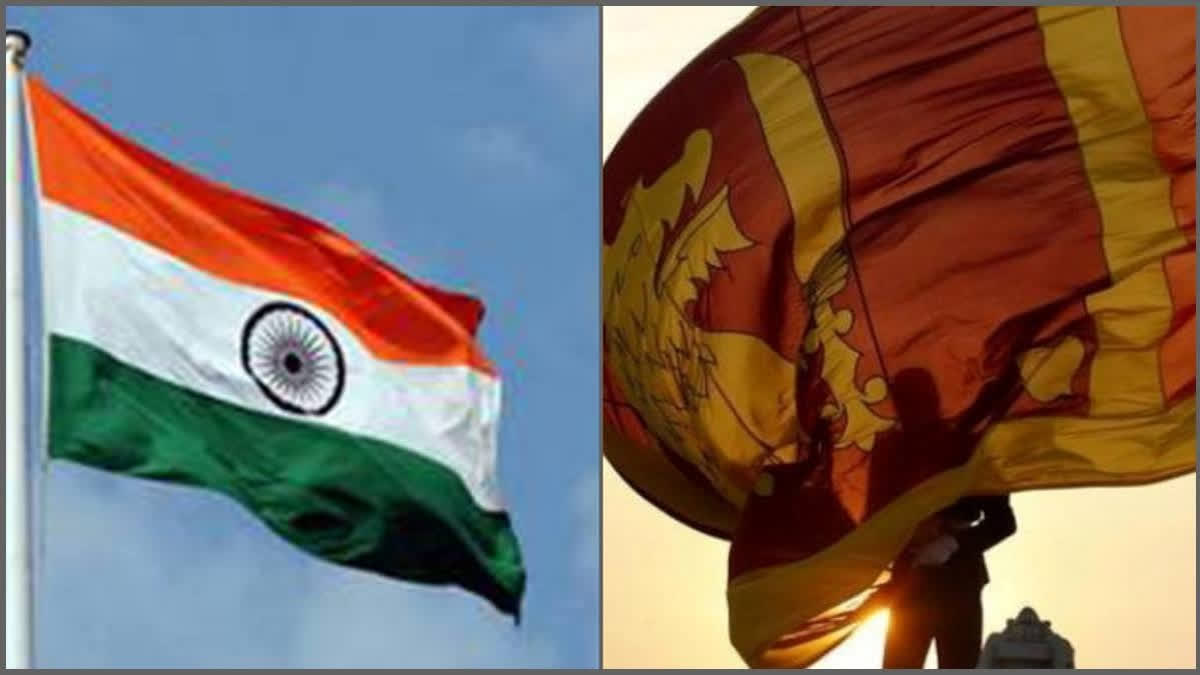New Delhi: Despite serious security concerns, the relationships between India and Sri Lanka have never been as good as they are now, especially after New Delhi provided massive assistance to the island nation to help deal with the economic crisis, former spokesperson of the Ministry of External Affairs (MEA) G Parthasarathy told ETV Bharat.
Commenting on National Security Advisor (NSA) Ajit Doval's visit to Sri Lanka, G Parthasarathy, the ex-High Commissioner of India to Pakistan said, "There are no serious problems between India and Sri Lanka in the current scenario but more security cooperation is expected between the two nations while the NSA visits Sri Lanka".
"In regards to Chinese ships docking in Sri Lanka, Sri Lanka is not providing any new facilities to the Chinese and has been sensitive about India's security concerns. Having served in Sri Lanka, I would say the relationships between India and Sri Lanka have never been as good as they are now, especially after New Delhi provided massive assistance to the island nation to help deal with the economic crisis," added Parthasarathy, who was also the former spokesperson of the Prime Minister's Office.
NSA Ajit Doval arrived in Sri Lanka on Thursday to participate in the Colombo Security Conclave. Doval had a meeting with Sri Lankan President Ranil Wickremesinghe at the Presidential Secretariat on Friday morning, where they discussed the ongoing bilateral economic collaboration.
The Colombo Security Conclave serves as a platform for National Security Advisors and Deputy NSAs from India, Sri Lanka, Maldives, and Mauritius to convene and address issues related to maritime security, counter-terrorism, and cyber security. It also provides an opportunity for India to highlight its strategic concerns in the Indian Ocean.
Doval's visit includes a comprehensive review of the discussions and outcomes of the Colombo Security Conclave. The conclave, which originally involved India, Sri Lanka, and the Maldives, has now expanded its membership, with Bangladesh and Seychelles having observer status in the meetings.
On Friday, the MEA said that the Member States of the Colombo Security Conclave (CSC) signed the Charter and the MoU for the Establishment of the CSC Secretariat today.
The Signing Ceremony was hosted in Colombo by the Government of Sri Lanka. Ajit Doval; Ibrahim Latheef, DC (Retd.), Lt. Col (Retd.), National Security Advisor of Maldives; Haymandoyal Dillum, High Commissioner of Mauritius to Sri Lanka and Sagala Ratnayake, National Security Advisor to the President of Sri Lanka signed the documents on behalf of the respective Member States.
The CSC's core objective is to promote regional security by addressing transnational threats and challenges of common concern to the Member States. There are five pillars of cooperation under the CSC namely Maritime Safety and Security; Countering Terrorism and Radicalisation; Combating Trafficking and Transnational Organised Crime; Cyber Security and Protection of Critical Infrastructure and Technology; and Humanitarian Assistance and Disaster Relief.
India's role in CSC
India has been playing a pivotal role in the CSC, an initiative focused on enhancing maritime security and addressing various challenges in the Indian Ocean Region (IOR). The CSC originally started as a trilateral maritime security cooperation between India, Sri Lanka, and the Maldives in 2011, but it has since expanded in scope and membership, reflecting India's proactive approach to regional security.
India was instrumental in the establishment of the CSC, recognising the need for a coordinated regional effort to address security challenges in the IOR. India views the IOR as a critical geopolitical area, vital for its security and economic interests.
The CSC aligns with India's broader vision of a free, open, and inclusive Indo-Pacific. India has pushed for the inclusion of other IOR countries in the CSC. Recently, Mauritius and Seychelles joined as members, while Bangladesh and other countries have participated as observers.
India has advocated for the CSC to evolve beyond maritime security, addressing non-traditional security challenges such as terrorism, human trafficking, and disaster management. India uses the CSC as a platform for diplomatic engagement, ensuring that regional security policies are aligned and that there is a consensus on addressing common challenges.
New Delhi's proactive role in the CSC also serves as a counterbalance to the influence of extra-regional powers in the IOR, particularly in light of the increasing Chinese presence.
Read More



